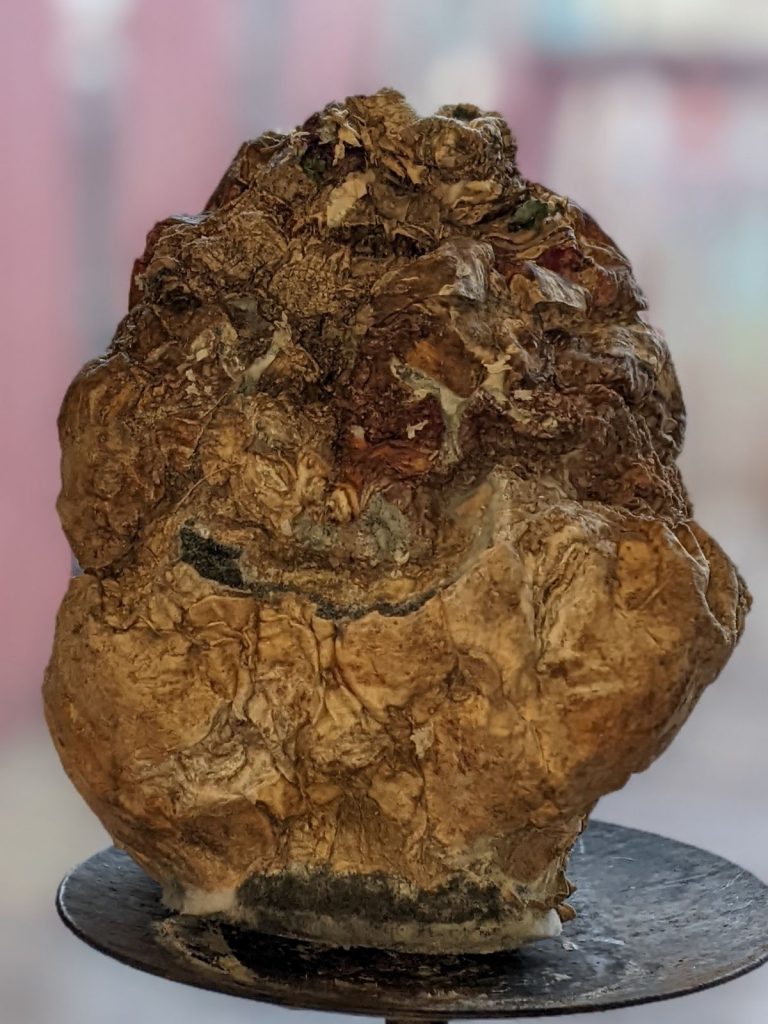
looks like your dodgy uncle

work as if you live in the early days of a better nation
Scotland, and Scottish things


What you can’t see is the smell of Halloween: the hum of charred turnip from the candle inside.
I’m Scottish. For Hallowen, it’s traditional to make lanterns out of turnips. How this was done before power tools, I’ll never know.
In 2015, I decided to make a traditional neep (that’s Scots for turnip) lantern. Yes, I used a holesaw, and turnip goo went everywhere.
It looked pretty good on the day:

Unlike pumpkins, turnips last. I left it out in the front garden.
It went very wizened:
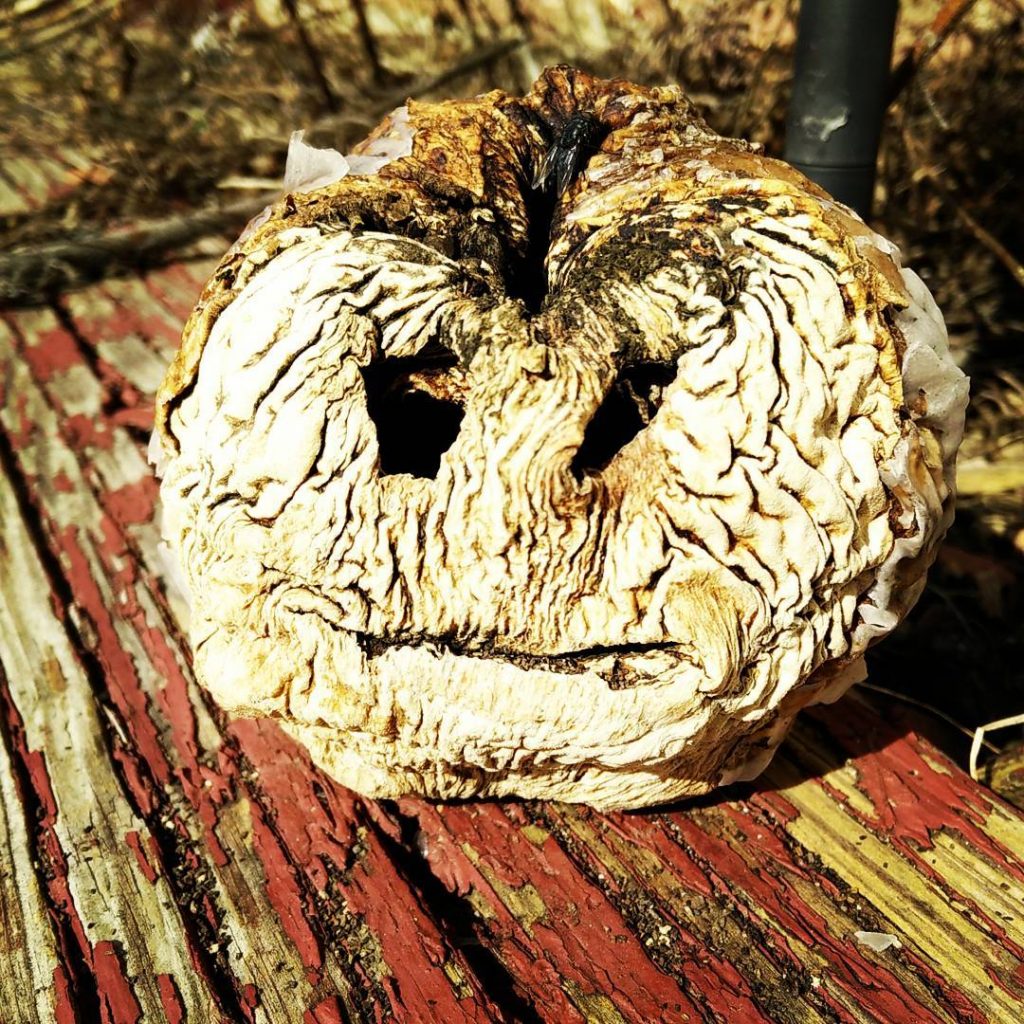
It disappeared towards the end of May 2016. This was the last time I saw it:
A Saturday morning queue for emigration ID photos on the Kirkintilloch High Street made me realise that Scotland wasn’t meeting the employment needs of its people. People in line were happily swapping stories of what they’d do after they’d had their photo taken, and departed for Canada, New Zealand, Australia or the USA. Although I was one of the happy band, it made me realize that Scotland was a country that people were lining up to leave. If the country you’re born in can’t offer you the best opportunities, it’s just not being run properly.
Scotland is part of the United Kingdom, not really by design, but by the coincidence of geography and 300+ year old expediency. Having provided England with a source of reliably non-Catholic monarchs the century before, Scotland of the early eighteenth century was dirt-poor from an ill-advised foray into Central American colonialism. Of course a union made sense in that time of empire building. It worked as a union for at least a couple of centuries, but like any marriage where the parties grow apart, grow unequal, or grow contemptuous, it’s a union that clearly has a time limit.
Part of the problem of being a minority partner in any endeavour is representation. Even though the union is one of nominal equals, when one is only 10% of the whole there can be little chance of the smaller party’s needs being met. In my technical sphere, 10% is typically considered rounding error; you can conventionally ignore that small part and still assume the whole of the system is included in your results. With different social priorities than the rest of the union, Scotland – sometimes a great nation in terms of its aspirations – can’t meet the needs of the people who live there without local control and responsibility. No-one wishes to spend their life as rounding error.
Viewing the independence discussion from afar is an odd situation for me. Abstracted from the daily local squabbles, I can appear to be detached. I must also guard against having an overly fierce opinion of something that isn’t going to greatly affect my life in Canada, while those in Scotland will have to live through it. What is clear, however, is the strange imbalance in the campaigns: Yes is all fired up, with positivity and community support by the truckload. No seems curiously muted; no grassroots, all cold reason and no heart. To see the energy even in National Collective‘s online presence reminds me of Barrie’s rather sly compliment to his countryfolk: “There are few more impressive sights in the world than a Scot[…] on the make.â€
Old JMB might have had less altruistic intentions with his words, but there is a great beauty in the energy of the pro-independence creatives making the idea of a new country. I just hope they’re backed with enough practical nous to get voters to the polls on the day, for that’s all that counts in a referendum.
The No arguments are leaden in comparison: Vote No Because That Bloke on the Telly Says So (remember, actors say the lines that people pay them to say); Vote No Because We [the UK] Love You, Please Stay (apart from sounding a bit creepy, haven’t they ever heard of “if you love someone, set them free†…?); Vote No Because You Won’t Get Access to London’s Lovely Jobs if You Leave (um, this appears not even to be a thing for all the Canadians who live and work in the US – a border is not a barrier). There just doesn’t seem to be a positive way of saying No.
Not all of the Yes proposals are entirely advisable, though. The issue of oil is a huge distraction. It may turn out to be of more value to leave it there unexploited, as a source of long-term carbon store revenue. Many people also bridle at Alex Salmond’s bluff facility, and of his standing as a statesman, I’m not a fan. Where he does shine, however, in his ability to be a canny negotiator. Scotland’s going to need a ferocious advocate to fight its corner in any independence talks, and Salmond is just the right kind of bastard to lead this. I would not be too keen if he stuck around as El Presidente for any great time afterwards, though.
To say No seems to me to defer the inevitable, at a time when the ruling party of the Divided Queendom could turn vindictive if Scotland sticks around. A referendum would come around again and again, each time the arguments becoming increasingly more abject. Best to do it now, and not defer the hard work of taking responsibility for Scotland’s future. Would you prefer to shirk as if you’re stuck in the latter days of a bitter nation, or rather take on the role of building the country you want?
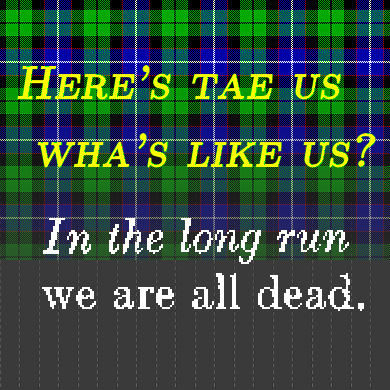
The Earl of Northumberland had dismissed as mere bragging the expressed intention of the Scottish government to try to do something about the Liddesdale robbers. Like Sim the Laird, he believed the Armstrongs were far too powerful for King James. But he was wrong. The young king had undertaken to “proceed to the sharpe and rygorouse pwnyssching of all transgressioune apone the bordourisâ€, and he now went to work, beginning with a gentle approach.
— from The Steel Bonnets, by George MacDonald Fraser, chapter 27.
Yes, the Scots. We may have been the bunk at spelling, but we’ve been pwning since 1529.
Swatrick Payze sure is the greatest thing since the last.
http://www.youtube.com/watch?v=vCZyl30qrSw
(via)
Pictures later.
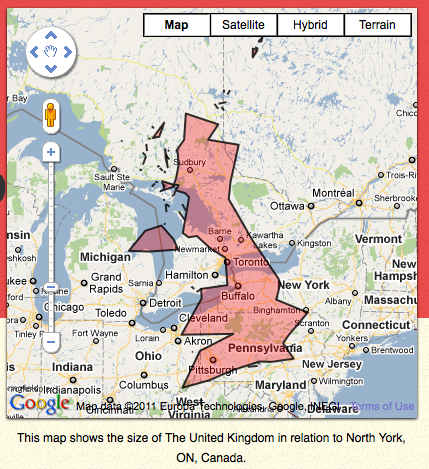 I think that IfItWereMyHome.com needs to work on its tracing of the UK.
I think that IfItWereMyHome.com needs to work on its tracing of the UK.
(via)
Arduino and the Irn-Bru Can Choir present Roy Williamson’s epic anthem:
Like O Canada and The Star Spangled Banner before it, it’s a random midi file (grabbed from Midi files of bagpipe tunes: mercifully, does not autoplay) converted to RTTTL and played through a glued-on piezo.
 It’s hard to call anything “breakaway” when the combined current ages of the proponents would put them born in the same week as Lord Rayleigh. The major schism would be over who had the more outlandish hat: radar station vs lampshade.
It’s hard to call anything “breakaway” when the combined current ages of the proponents would put them born in the same week as Lord Rayleigh. The major schism would be over who had the more outlandish hat: radar station vs lampshade.
We are not here in this world to find elegant solutions, pregnant with initiative, or to serve the ways and modes of profitable progress. No, we are here to provide for all those who are weaker and hungrier, more battered and crippled than ourselves. That is our only certain good and great purpose on earth, and if you ask me about those insoluble economic problems that may arise if the top is deprived of their initiative, I would answer ‘To hell with them.’ The top is greedy and mean and will always find a way to take care of themselves. They always do.
— Michael Foot, 1983
I see that you can now view WWII historical imagery in Google Earth. Yes, there’s Dresden, Hamburg and Warsaw. But what about Clydebank, Coventry, London? Yes, it wouldn’t have been allied imagery, but we were bombed too.
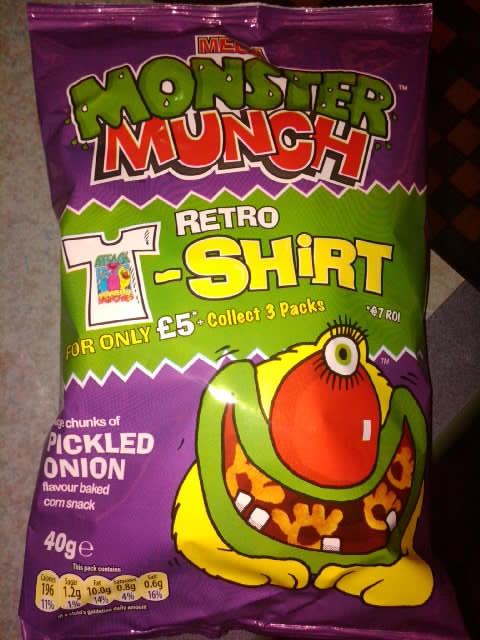
Ladies and germs, I give you … pickled onion Monster Munch. Let me get back to you on how they taste.

… deep fried barf is the best I can come up with. Crispy, yet vile. By the end of the bag, my tastebuds gave in, leaving me to lever the compressed corn pulp from my molars. It feels like I’ve ScotchGarded the inside of my mouth. Just as I remember them, then.
Tyre sabotage brings race to halt
Police are investigating after carpet tacks were spread across roads bringing a major cycle race to a halt.
Just a few reasons why sabotaging the Étape Caledonia was wrong:
At least the race will go on next year.
BBC NEWS | UK | Scotland | Glasgow, Lanarkshire and West | Man ‘killed as he walked his dog’
I’m not sure what made me look at this article on the BBC News website, but when I did, I think I just discovered that one of my friends from Strathclyde University has been murdered.
George Stewart was a mature student from Darvel (or ‘Dervel’, as he insisted it be pronounced) who joined Mechanical Engineering in second year in 1988. He’d worked for de Havilland in Ayrshire, and was a time-served engineer. He was working for one of the big engineering companies (maybe Howden) that were just waning under Maggie’s relentless efforts. George breezed through practical work (especially drawing) but found some of the theoretical stuff more challenging. He was a jovial soul, and good company in a lab or tutorial.
I can’t say for certain that this is the same George Stewart – but Darvel’s a small town, his picture looks the same, and he’d be the right age. Condolences to his family and friends – George was a great guy.
If you know anything, please contact Strathclyde Police Force.
I can’t really wish that Lang May Your Lum Reek if I’m concerned about CO2 and smog emissions, can I?